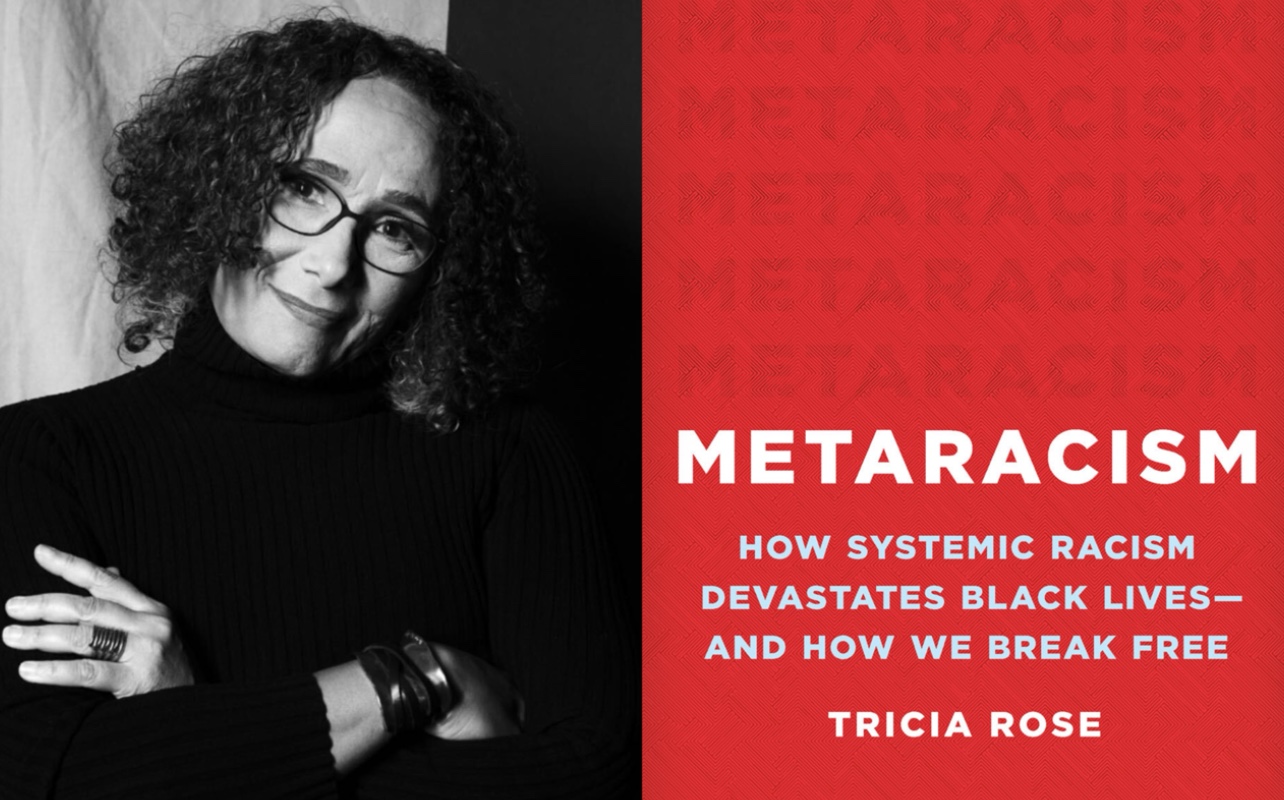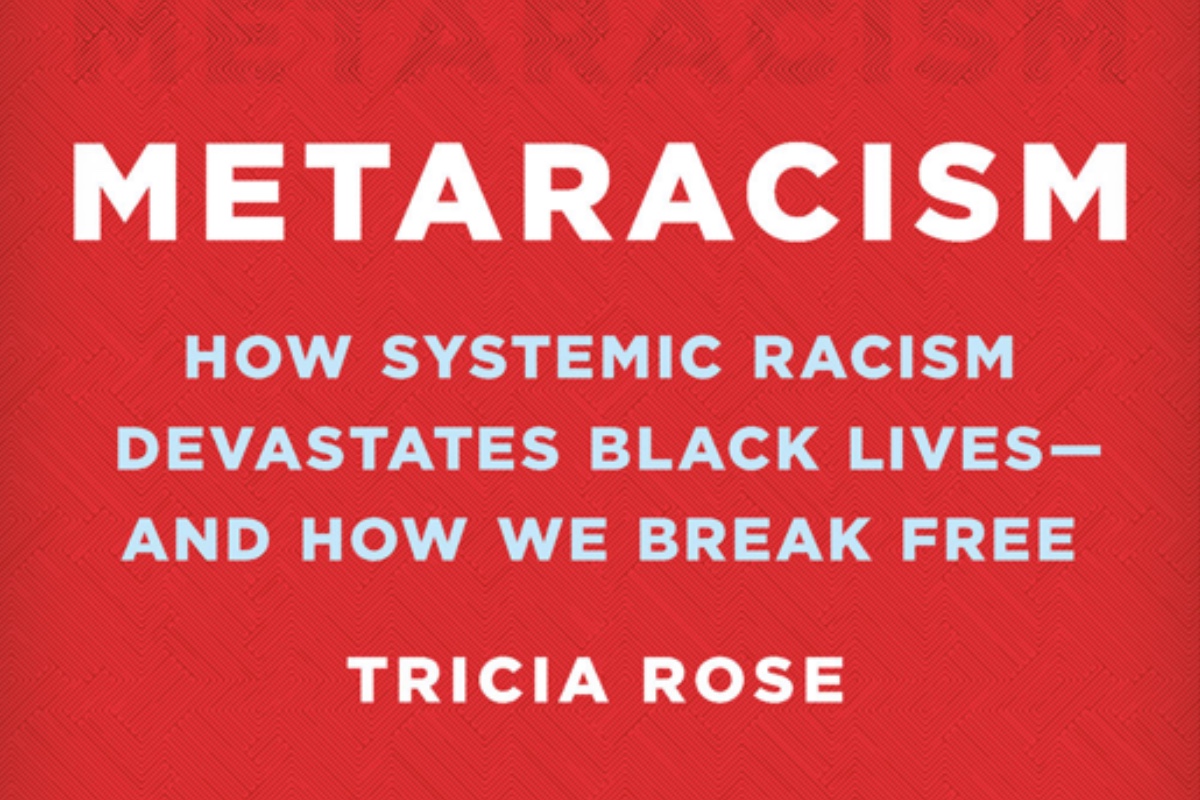
March 4, 2024
Tricia Rose Unpacks ‘Metaracism’ In Exploration Of Systemic Racism’s Effects
After conducting research for over a decade, Tricia Rose releases her new book explaining “metaracism” and racism in America as a system.
In her groundbreaking work, Metaracism: How Systemic Racism Devastates Black Lives—and How We Break Free, Tricia Rose unveils a compelling analysis that sheds light on the intricate web of practices perpetuating racial inequality.
By meticulously dissecting the stories of Trayvon Martin, Kelley Williams-Bolar, and Michael Brown, the Brown University professor guides readers through a thought-provoking exploration of the systemic patterns of containment, extraction, and punishment directed at Black communities nationwide.

Metaracism
A press release revealed that Rose’s extensive research challenges the prevailing notion that racism is primarily driven by individual biases or explicitly discriminatory laws. Instead, she introduces the concept of “metaracism,” a term that encapsulates the “compounding impact of racial disadvantage and discrimination more devastating than any single policy or practice could create.” As she explains, “‘Meta’ is a systems term describing the compounding effects of the interconnections that are reinforced over time in any system.”
The Africana Studies professor emphasizes the significance of understanding the difference between “structural” and “systemic” racism. “The key difference is that ‘systemic racism’ analyzes racism as a system, which emphasizes the dynamic interconnections between its component parts.”
Hidden Mechanisms and Breaking Free From Limitations
Through her analysis, Rose unveils the hidden mechanisms that perpetuate systemic racism. She asserts, “So much of the work of systemic racism is hidden from view that individuals from many backgrounds may find that they are unwittingly benefiting from a racist system, even if they themselves strongly believe in racial equality.”
To break free from the limitations imposed by systemic racism, the author advocates for a paradigm shift in our collective thinking by looking at two strategies. The first is to “change the way we perceive and analyze events and outcomes: away from a ‘one or two bad apples’ approach and toward a systemic point of view that probes the interconnections between different policies, practices, laws, and beliefs” she explains.
The second strategy is to leverage the new systemic point of view “to drive a paradigm shift in our collective thinking about and responses to racism.”
Rose’s research reveals the profound and disproportionate harm inflicted upon Black communities by the system of racism, while simultaneously highlighting the inverse: the system profoundly and disproportionately favors those not perceived as Black, especially white individuals. As she poignantly states, “If we as a society value equality of opportunity and outcome – regardless of race, religion, gender or other factors – then what harms one group, harms all.”
To challenge skepticism and foster understanding, Rose advocates for retelling familiar stories in a way that “illuminates the impact” of larger social policies and practices. “Too often, we tell stories that deny the connection between the profound advantages for some of us and the staggering level of human-produced suffering directed toward Black people,” she asserts.
The award-winning writer has conducted her research for more than a decade, according to a Feb. 28 interview with ABC News.
Metaracism: How Systemic Racism Devastates Black Lives—and How We Break Free, published by Basic Books, is set to release on March 5, 2024. Rose invites readers to engage in conversation at upcoming events, including March 14 at Brown University in Providence, Rhode Island; March 18 at Brattle Theatre in Cambridge, Massachusetts (a conversation with Henry Louis Gates, Jr.); March 22 for Politics & Prose in Washington, DC; and April 10 at the Free Library of Philadelphia.
RELATED CONTENT: Black Twitter Blasts Home Owner’s Associations For Its History Of Systemic Racism